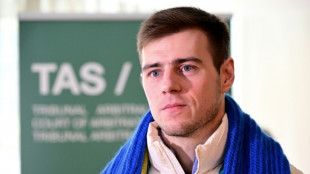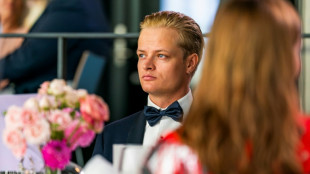
-
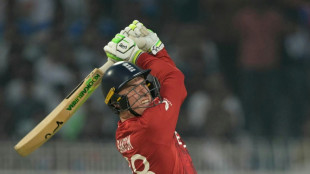 Banton powers England to victory over Scotland at T20 World Cup
Banton powers England to victory over Scotland at T20 World Cup
-
Zelensky says all Ukrainian power plants damaged, calls Putin 'slave to war'
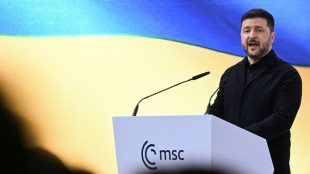
-
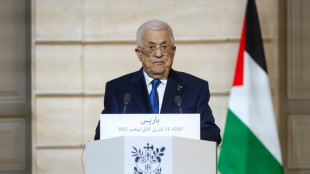 Palestinian leader urges removal of all Israeli 'obstacles' on Gaza ceasefire
Palestinian leader urges removal of all Israeli 'obstacles' on Gaza ceasefire
-
Igor Tudor hired as Tottenham interim manager
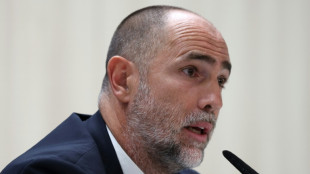
-
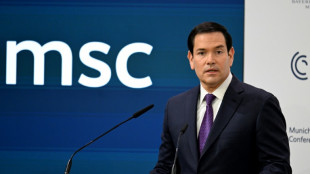 Rubio tells Europe to join Trump's fight, says it belongs with US
Rubio tells Europe to join Trump's fight, says it belongs with US
-
Winter Olympians have used 10,000 condoms
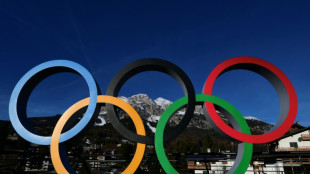
-
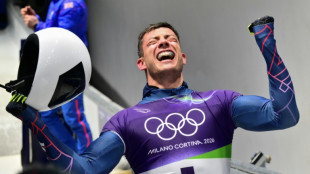 Weston's skeleton Olympic gold a triumph over adversity
Weston's skeleton Olympic gold a triumph over adversity
-
England bowl Scotland out for 152 in T20 World Cup
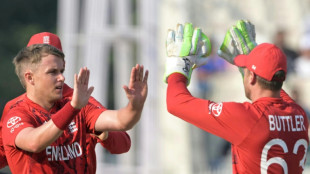
-
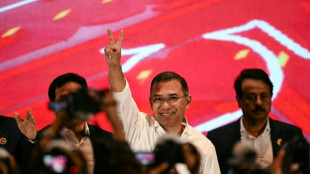 Bangladesh PM-to-be Rahman thanks those who 'sacrificed for democracy'
Bangladesh PM-to-be Rahman thanks those who 'sacrificed for democracy'
-
Sabalenka, Swiatek withdraw from WTA 1000 event in Dubai
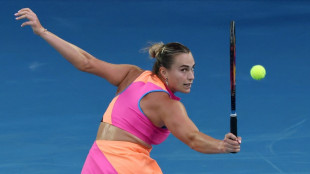
-
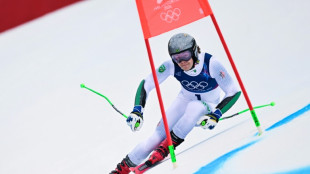 Brazil's Braathen in pole for historic Olympic giant slalom medal
Brazil's Braathen in pole for historic Olympic giant slalom medal
-
Top entertainment figures back under-fire UN Palestinians expert
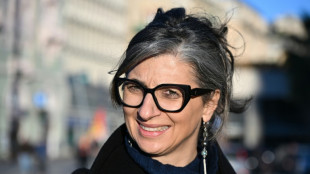
-
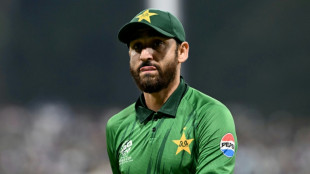 Pakistan 'always ready' for India despite late green light: Agha
Pakistan 'always ready' for India despite late green light: Agha
-
Rubio tells Europe it belongs with US, calls it to join Trump's fight
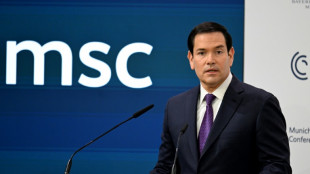
-
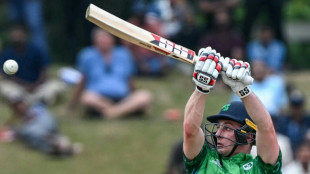 Tucker stars as Ireland crush Oman by 96 runs at T20 World Cup
Tucker stars as Ireland crush Oman by 96 runs at T20 World Cup
-
Rubio tells allies US and Europe 'belong together'
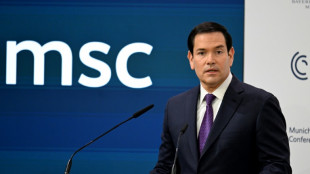
-
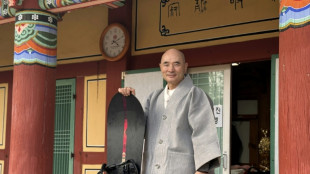 Snowboarding monk in spotlight after S. Korea's Olympic glory
Snowboarding monk in spotlight after S. Korea's Olympic glory
-
Bangladesh's Tarique Rahman poised to be PM as Islamists concede
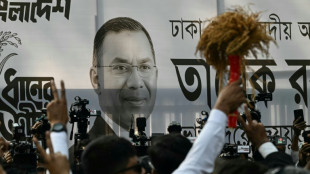
-
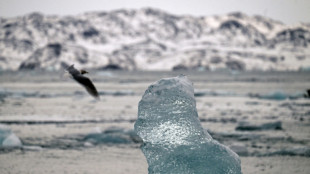 What does Greenland's mining industry look like?
What does Greenland's mining industry look like?
-
Greenland prepares next generation for mining future
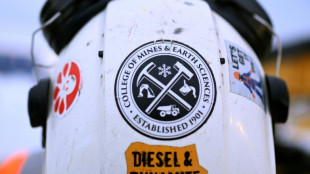
-
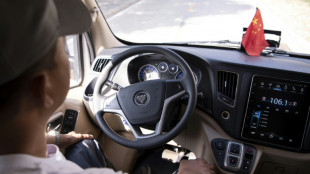 China top court says drivers responsible despite autonomous technology
China top court says drivers responsible despite autonomous technology
-
Sixers rookie Edgecombe leads 'Team Vince' to NBA Rising Stars crown
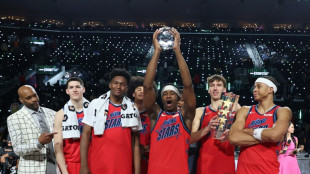
-
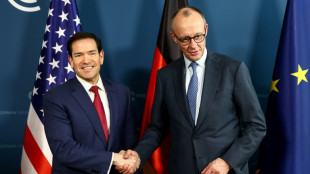 Rubio at Munich security meet to address Europeans rattled by Trump
Rubio at Munich security meet to address Europeans rattled by Trump
-
Medal-winner Sato says Malinin paid for 'toxic schedule'
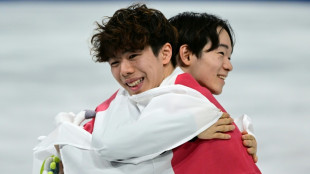
-
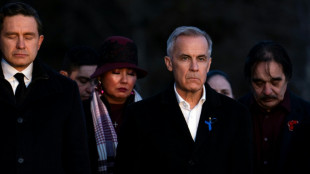 Carney offers support of united Canada to town devastated by mass shooting
Carney offers support of united Canada to town devastated by mass shooting
-
All-in on AI: what TikTok creator ByteDance did next

-
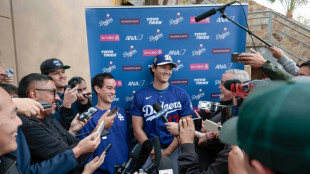 Healthy Ohtani has Cy Young Award in sights
Healthy Ohtani has Cy Young Award in sights
-
One of Lima's top beaches to close Sunday over pollution
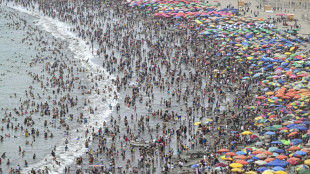
-
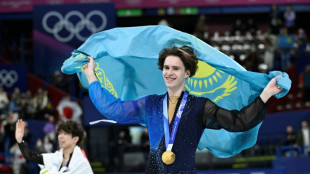 'Nothing is impossible': Shaidorov shocks favourite Malinin to make history
'Nothing is impossible': Shaidorov shocks favourite Malinin to make history
-
Malinin wilts at Olympics as Heraskevych loses ban appeal
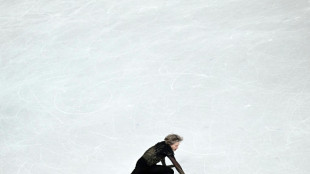
-
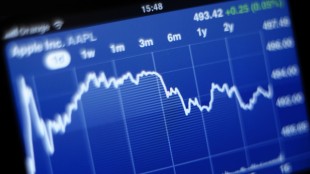 B2B Buzz Launches Integrated AI Framework to Combat Declining Returns in Single-Channel Outreach
B2B Buzz Launches Integrated AI Framework to Combat Declining Returns in Single-Channel Outreach
-
Shootify Establishes Itself as a Go-To Studio for Fashion E-Commerce Photography
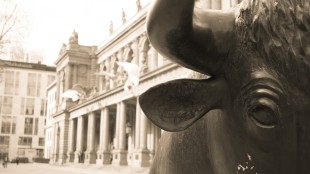
-
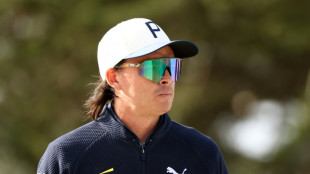 Bhatia joins Hisatsune in Pebble Beach lead as Fowler surges
Bhatia joins Hisatsune in Pebble Beach lead as Fowler surges
-
Malinin meltdown hands Shaidorov Olympic men's figure skating gold
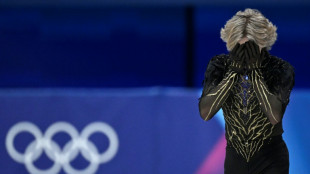
-
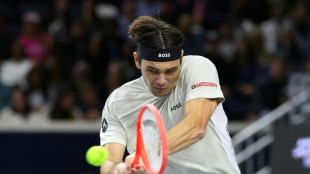 Top seed Fritz makes ATP Dallas semis with fantastic finish
Top seed Fritz makes ATP Dallas semis with fantastic finish
-
Patriots star receiver Diggs pleads not guilty to assault charges
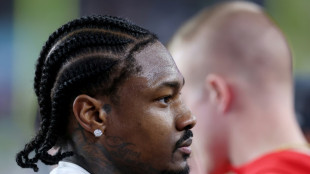
-
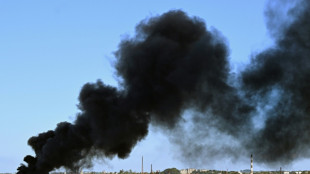 Havana refinery fire under control as Cuba battles fuel shortages
Havana refinery fire under control as Cuba battles fuel shortages
-
Peru Congress to debate impeachment of interim president on Tuesday
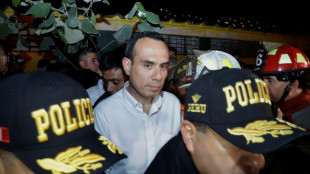
-
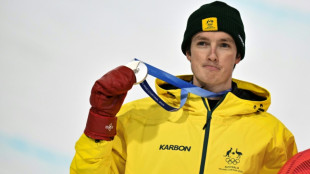 Snowboard veteran James targets 2030 Games after Olympic heartbreak
Snowboard veteran James targets 2030 Games after Olympic heartbreak
-
Costa Rica digs up mastodon, giant sloth bones in major archaeological find
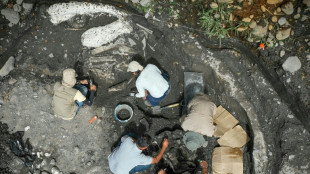
-
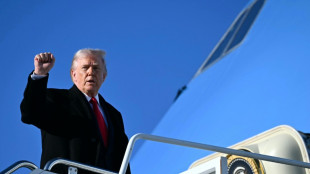 Trump says change of power in Iran would be 'best thing'
Trump says change of power in Iran would be 'best thing'
-
Paris police shoot dead knife man at Arc de Triomphe
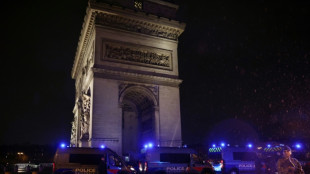
-
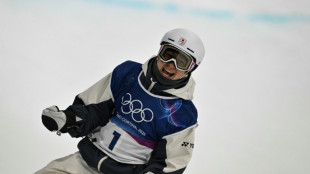 Japan's Totsuka wins Olympic halfpipe thriller to deny James elusive gold
Japan's Totsuka wins Olympic halfpipe thriller to deny James elusive gold
-
Canada's PM due in mass shooting town as new details emerge
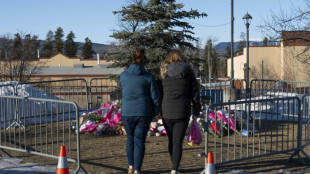
-
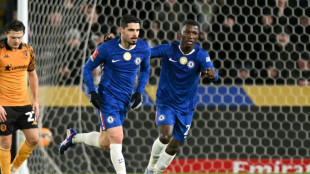 Neto treble fires Chelsea's FA Cup rout of Hull
Neto treble fires Chelsea's FA Cup rout of Hull
-
Arbitrator rules NFL union 'report cards' must stay private
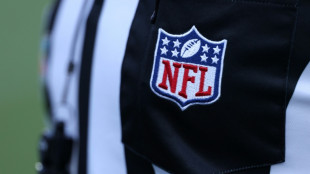
-
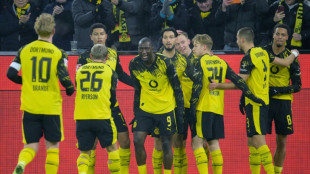 Dortmund thump Mainz to close in on Bayern
Dortmund thump Mainz to close in on Bayern
-
WHO sets out concerns over US vaccine trial in G.Bissau
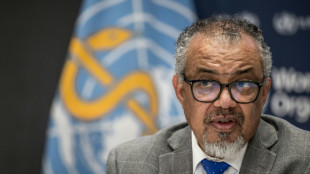
-
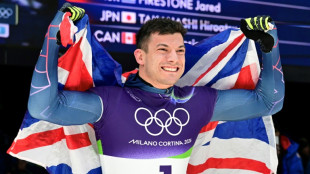 Skeleton racer Weston wins Olympic gold for Britain
Skeleton racer Weston wins Olympic gold for Britain
-
Ex-CNN anchor pleads not guilty to charges from US church protest
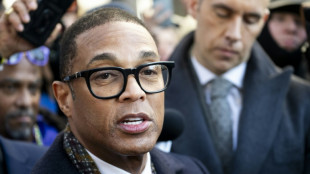

Eurovision comes full circle, showing changing times
Switzerland is hosting Eurovision for the third time, with the extravaganza a world away from when it staged the inaugural competition in 1956 -- and also from 1989 when Celine Dion starred.
The 2025 edition on May 17 in Basel will draw an expected TV audience of around 160 million, with viewers worldwide casting their votes.
Here is a look back at how Switzerland staged the 1956 and 1989 editions, illustrating how the competition has evolved:
- Lugano 1956 -
The Eurovision Song Contest started as a technical experiment: a live, simultaneous, transnational television broadcast.
Switzerland's centrality in Europe made it a natural choice for transmitter purposes.
The inaugural Eurovision was held in Lugano, in the Italian-speaking Ticino region.
Seven countries took part -- Belgium, France, Italy, Luxembourg, the Netherlands, Switzerland and Germany -- with two songs each, for the only time in the competition's history.
The event was fronted in Italian by presenter Lohengrin Filipello -- the only time there has been a solo male host -- who enthused that the winning composer could boast of writing "the most beautiful song in Europe".
Ten television and 20 radio networks carried the broadcast, which lasted an hour and 40 minutes.
With television ownership still in its infancy, most people heard it on the radio and little black-and-white footage survives.
The performers were accompanied by a 24-piece orchestra.
Groups were banned -- a rule which lasted until 1971.
Countries sent two jury members, who unlike now could vote for their own country. Their scores have never been made public.
Switzerland's Lys Assia triumphed with her second song, the French-language "Refrain".
Switzerland declined to host again in 1957, with the second Eurovision staged in Frankfurt, West Germany.
Assia entered the Swiss domestic competition to choose a song for Eurovision 2012, coming eighth in the televote.
She died in 2018, aged 94.
- Lausanne 1989 -
Appearing for Switzerland, Canadian then-starlet Celine Dion triumphed in 1988 singing "Ne partez pas sans moi", launching her career internationally.
It was the last time a song in French won Eurovision.
The following year, the 34th Eurovision was staged in Lausanne, with 22 countries taking part.
The logo, featuring the Matterhorn mountain, was designed using new-fangled computer graphics, while the set used glaring neon strip lights and rotating coloured spotlights.
The show featured the two youngest competitors in the contest's history: 12-year-old Gili Netanel from Israel and 11-year-old Nathalie Paque representing France.
The precedent had been set when Belgium's 13-year-old Sandra Kim won Eurovision 1986.
But the even younger acts sparked controversy, and since 1990, contenders have to be at least 16.
The show was hosted by Swiss sports commentator Jacques Deschenaux and Miss Switzerland 1982 Lolita Morena, rotating between French, English, Italian and German.
Morena later married World Cup-winning German football great Lothar Matthaus.
While the juries made their decisions, a stunt artist fired crossbow shots live on stage, culminating by setting off a chain reaction with the final arrow aimed at an apple on his own head, in homage to Swiss mythical idol William Tell.
It narrowly missed the apple, his head, and disaster.
National juries read their results down crackly phone lines from European capitals.
Yugoslavia was the surprise winner with "Rock Me" performed by the group Riva. Dion presented them with a plaque.
Within a few years, Yugoslavia plunged into war and disintegrated. Riva likewise fell apart, in 1991.
A.Malone--AMWN
